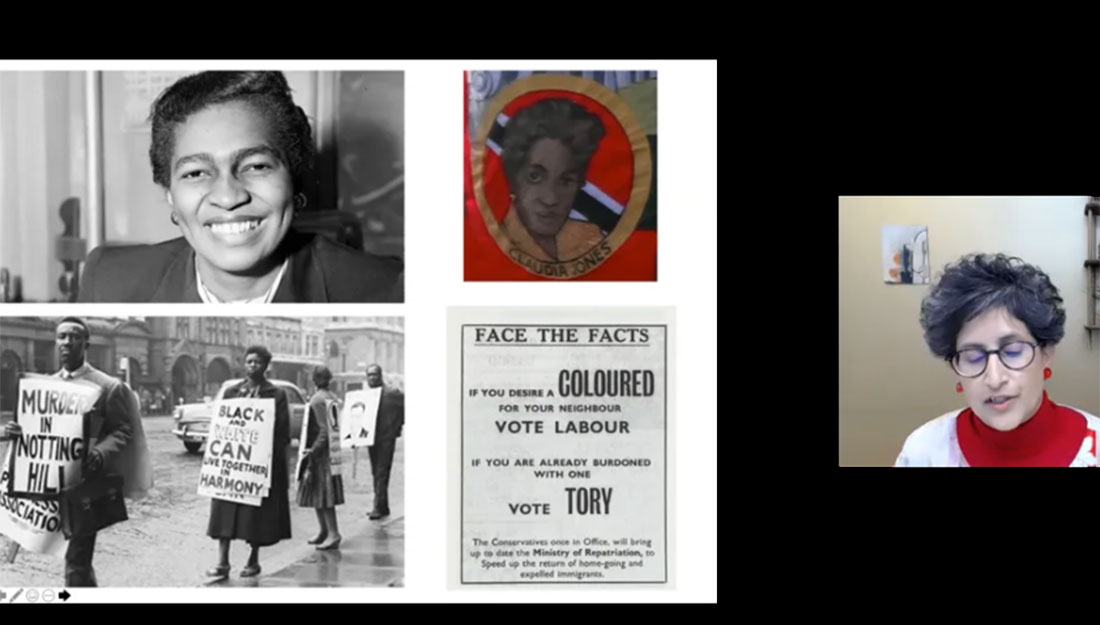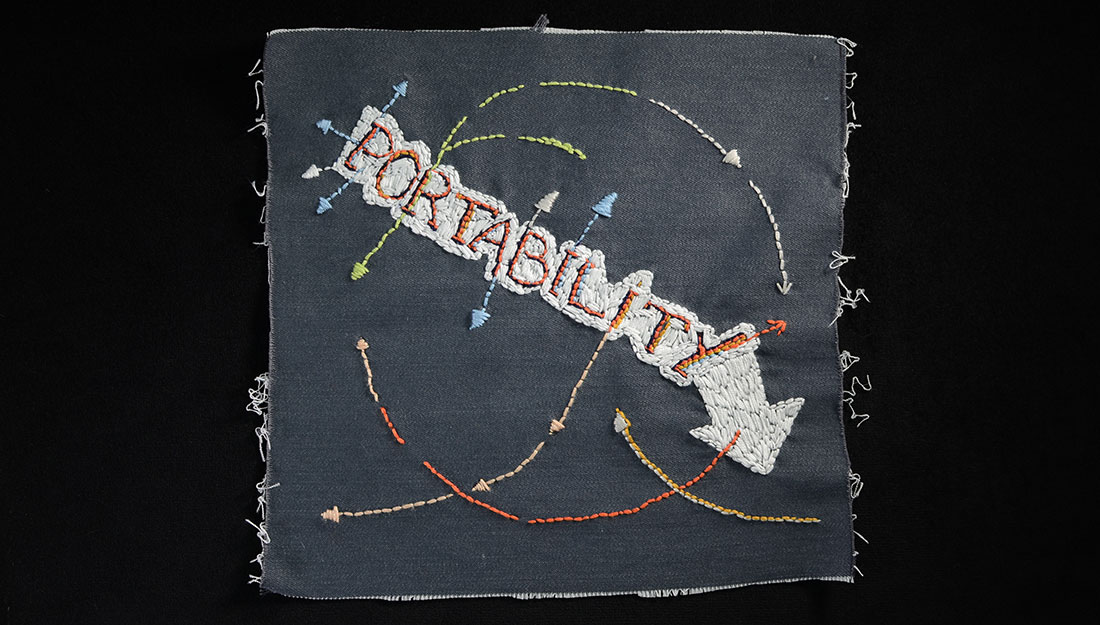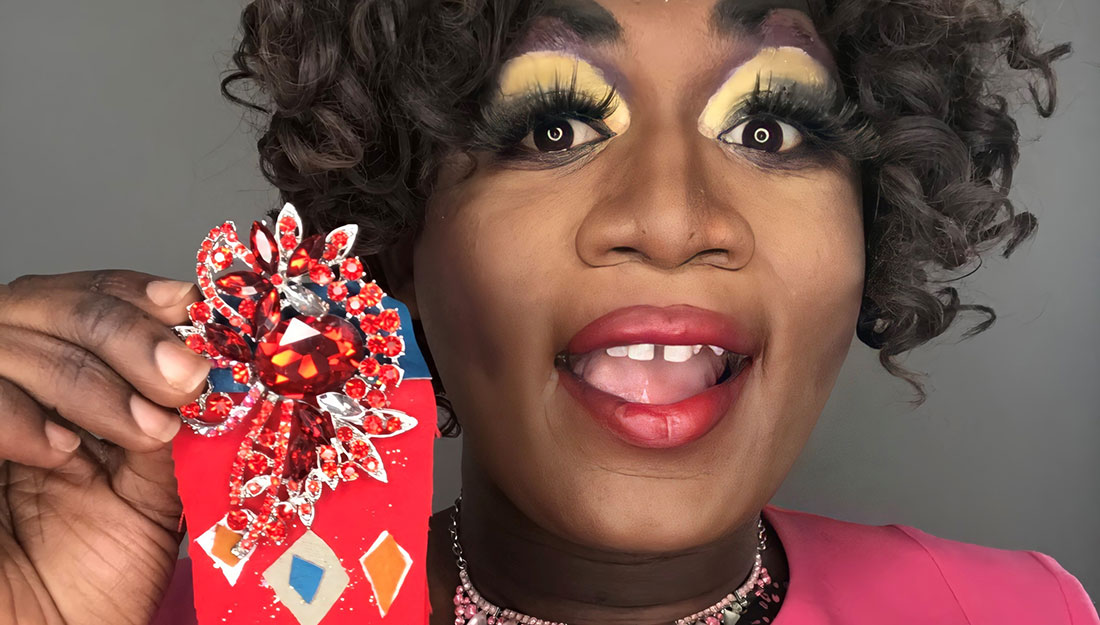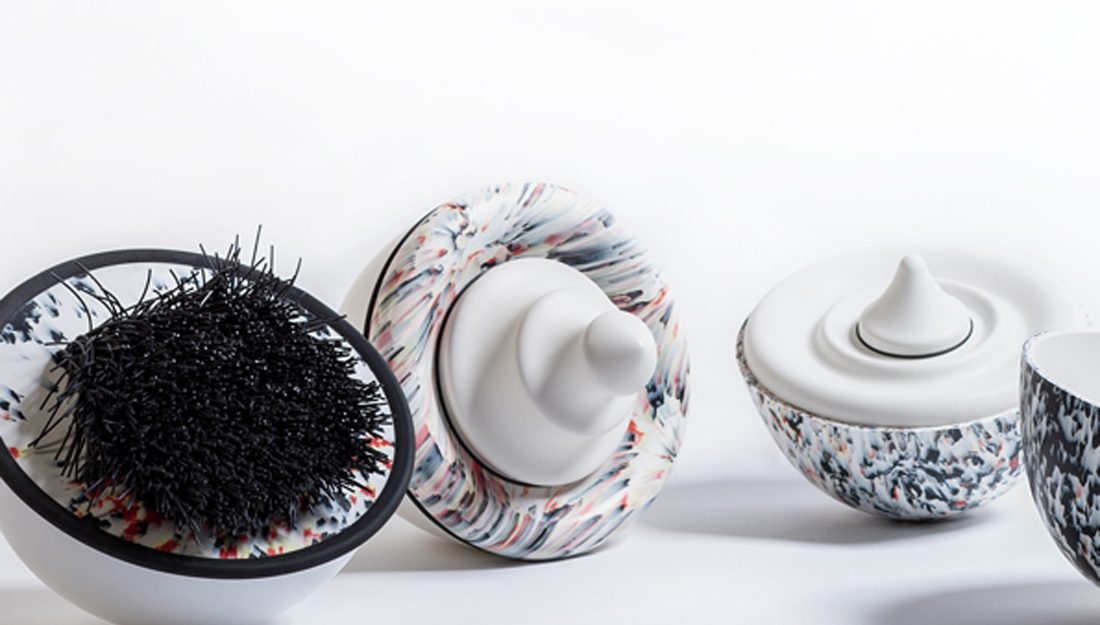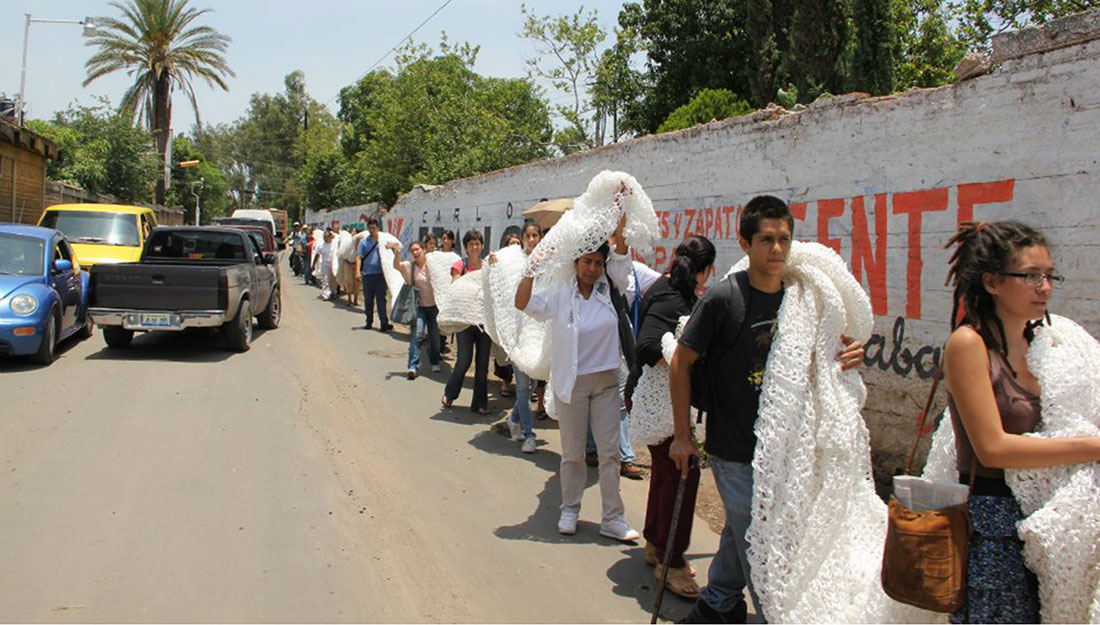“A people’s art is the genesis of their freedom”
The 2020 Peter Dormer Lecture, hosted by the Royal College of Art
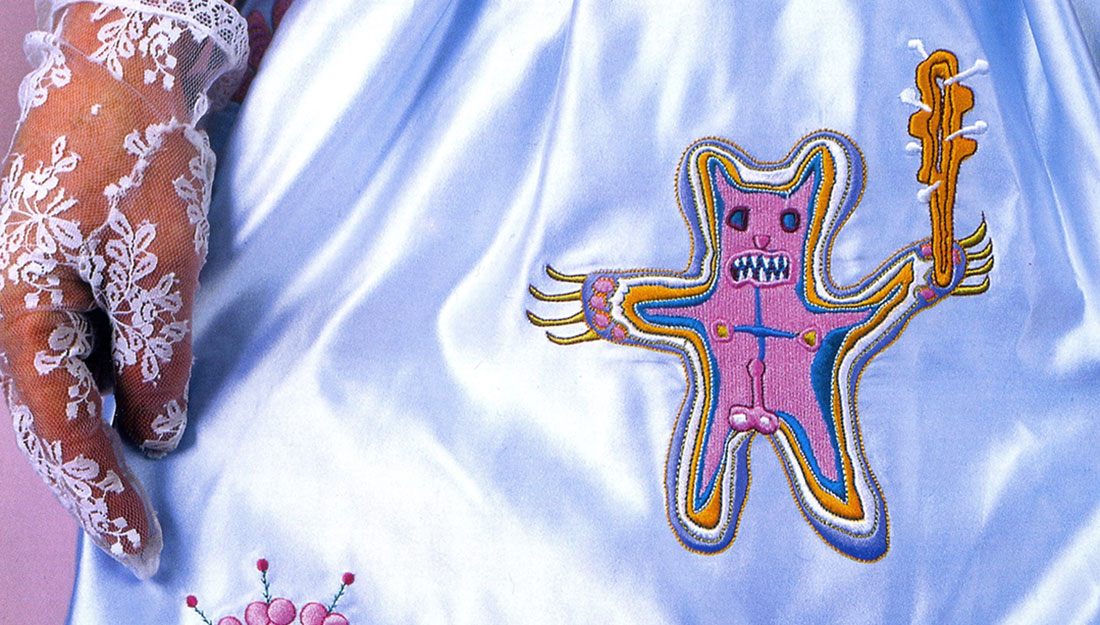
Grayson Perry, Coming Out Dress (detail of the dress which was featured in our ‘A Sense of Occasion’ exhibition, 2000). Photo: Rob Weiss
Monday 25th January 2021, 7pm
Recorded online lecture
The 2020 Annual Peter Dormer Lecture was slightly delayed but we we’re really excited that the guest speaker for the first digital version of the lecture was our Director, Deirdre Figueiredo. The lecture, given to the largest ever audience, was recorded and is available to watch or download the transcript on the Royal College of Art website.
“A people’s art is the genesis of their freedom” Claudia Jones
Civil rights activist Claudia Jones used this as the slogan for the first Notting Hill Carnival, which she organised in 1959, as an act of radical solidarity against racist violence. It harnessed the politics of community lived experience and focused it into a joyful celebration and expression of what it meant to be Black in 1950’s Britain.
This lecture reflected on this slogan 60 years later in the midst of a global pandemic and racial injustice highlighted by the Black Lives Matter movement.
Taking this idea as a principle and truth that underpins the work of Craftspace, it demonstrated that creativity through making, no matter how loud or quiet, how individual or collective, is a vital act of resistance and claiming identity.
A list of projects and websites mentioned in the lecture:
Radical Craft exhibition
Radical Craft, Andrew Omoding residency
Shelanu Collective
Women’s Maker Movement
Co-Creating Care AHRC research project Myrtle and Dawn
The Organization of Craft Work Identities Meanings and Materiality
Making for Change Expo
Making Together (early years)
We are Commoners exhibition
We are Commoners research Blog
Craft in Common video resource/workshops
In:Site Festival
Maker-Centric AHRC research project. Book chapter: ‘Being Maker-Centric: Making as Method for Self-Organising and Achieving Craft Impact in Local Communities and Economies’. pp. 235-259.
Other links
The Care Manifesto by the Care Collective Verso
Radical Self-Care, Shahida BariBBC Radio 4 – Radio 4 in Four – The radical history of self-care
The Peter Dormer Lecture
Deirdre joins a list of diverse and high profile speakers including Grayson Perry, Richard Wentworth, Martina Margetts and Edmund de Waal. Watch and download summaries of previous lectures on the RCA website.
The Peter Dormer Lecture is the UK’s major annual applied arts lecture, held in memory of Peter Dormer, the writer and critic who died in 1996. Organised by a committee of his friends and colleagues and hosted by the Royal College of Art, the lecture aims to continue the debate about applied art and society that was central to Dormer’s concerns. Peter Dormer’s writings embraced art, architecture, design, technology and education; and his critical and curatorial work helped to promote the crafts into the freeflowing currents of postmodern visual culture. This connectivity is something these lectures celebrate and promote.
